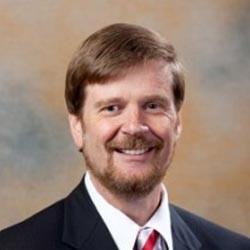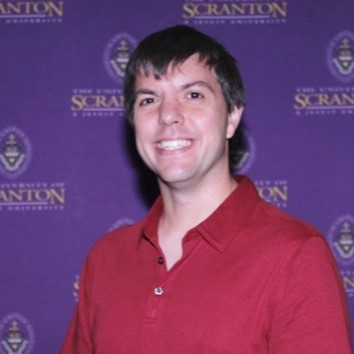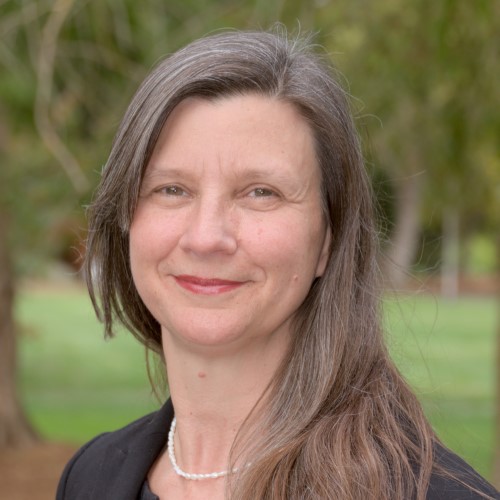Eclipse 2024: Solar Science in Action
1 March, 2024 | 12:00-1:00pm ET
Observing a solar eclipse is one of many ways to get in on the fun of doing science. With the upcoming total solar eclipse on April 8, 2024, you can get involved with a number of citizen science projects—collaborations between scientists and members of the public. Volunteers on such projects (known as citizen scientists) have helped make thousands of important scientific discoveries. This session will discuss some eclipse citizen science projects and how you can get involved.
Speakers
 Gordon Emslie
Gordon Emslie
Dr. Gordon Emslie was born in Scotland, and attended the University of Glasgow, earning baccalaureate and doctoral degrees in Astrophysics. He was a Research Assistant at the Harvard-Smithsonian Center for Astrophysics and a Research Associate at the Institute for Plasma Research at Stanford University. He then served as a faculty member at the University of Alabama in Huntsville, where he became Chair of the Department of Physics and Dean of the School of Graduate Studies, He held the position of Associate Vice President for Research and Dean of the Graduate College at Oklahoma State University and Provost at Western Kentucky University, where he is currently a Professor of Physics & Astronomy.
Emslie has also earned master’s degrees in Mechanical Engineering, Atmospheric Science and Materials Science, and a Bachelor of Arts in French. His research interests are in high-energy solar astrophysics, and he is a co-investigator on the NASA Ramaty High Energy Solar Spectroscopic Imager (RHESSI) mission. He is also a licensed Professional Engineer.
Daniel is a Floridian who became fascinated with the power and importance of weather in his community during the extremely active 2004 hurricane season. Daniel received a B. S. in Meteorology from The Florida State University and his Ph.D. in Atmospheric Science from the Massachusetts Institute of Technology.
 Nathaniel Frissell
Nathaniel Frissell
Dr. Nathaniel Frissell, a Space Physicist and Electrical Engineer from NJIT CSTR, specializes in radio science and ionospheric remote sensing. He founded HamSCI, connecting amateur radio with professional research and earning recognition in the amateur radio community. Passionate about teaching and education, he looks forward to engaging students at the University of Scranton in courses like Digital Signal Processing, Fundamental Physics, and Electromagnetics, sharing his enthusiasm for radio and space science.
 Laura Peticolas
Laura Peticolas
Dr. Laura Peticolas is Associate Director of EdEon STEM Learning at Sonoma State University, where she works to engage teachers, high school students and college freshmen in earth and astronomy participatory experiences using coding, hardware, and experimental design. Dr. Peticolas received her B.A. in mathematics and physics at the University of Oregon Honors College and her Ph.D. in physics studying the aurora at the University of Alaska, Fairbanks. She spent 3 years as a post-doctoral fellow at the University of California’s Space Sciences Laboratory continuing her study of Earth’s aurora using NASA’s Fast Auroral SnapshoT satellite data and computational models. During this time, she expanded her research to include developing computer models of the Martian aurora. She continued these computational research efforts while transitioning to the profession of education and outreach in 2008. In 2010, she became a Senior Fellow at the Space Sciences Laboratory at the University of California, Berkeley, and Director of Multiverse, the Space Sciences Laboratory’s education group. This move completed her transition from science research to science education as a focus. In 2017, she moved to Sonoma State University in order to continue her work with high school science teachers and undergraduate students historically underserved in Science, Technology, Engineering, and Mathematics (STEM).
Moderator
.jpg) Genene Fisher
Genene Fisher
Genene Fisher is a Program Scientist in the NASA Heliophysics Space Weather Program. Throughout her career, Genene has worked with government, industry, academia, and international organizations to improve space weather science and services to build the resilience of our Nation to space weather impacts. She is a former Commissioner of the AMS Scientific and Technological Activities Commission (STAC).
